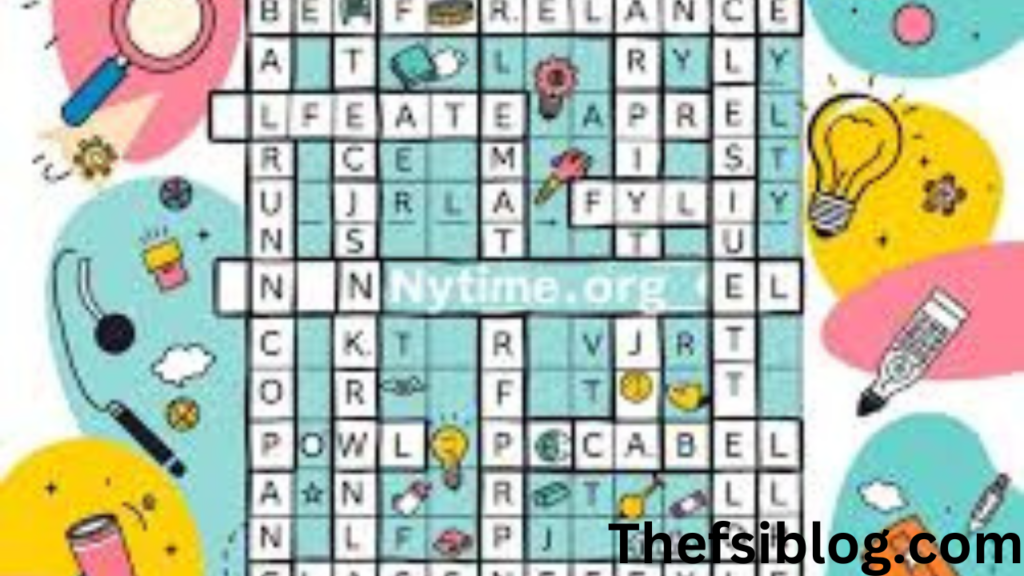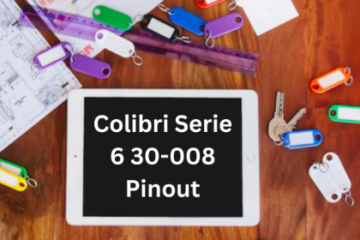introduction

If you’re stumped by the “absolute junk” crossword clue from the New York Times Mini Crossword last seen on April 27, 2024, we’ve got you covered! Crossword puzzles offer not only a fun mental challenge but also help keep your brain sharp, which is especially important as we age. Regular engagement with puzzles can improve cognitive function and even reduce the risk of mental decline.
Now, let’s dive into the answer for the “absolute junk” clue.
The Clue and Its Solution

The crossword clue “absolute junk” appeared in the NYT Mini Crossword on April 27, 2024. The answer? DRECK. This term, derived from Yiddish, translates to “rubbish” or “something of poor quality.” While informal, it’s a popular word used in crossword puzzles to signify something worthless or of little value.
- Answer: DRECK
- Date: April 27, 2024
- Source: NYT Mini Crossword
Why This Clue Matters
Solving this clue doesn’t just enhance your crossword skills—it also expands your understanding of regional slang and informal language. Words like “dreck” are prime examples of how language evolves and finds its way into various forms of media, including crossword puzzles. As you solve these clues, you become more familiar with slang and colloquial expressions that are commonly used in different contexts.
Tips for Improving Your Crossword Skills
Working on crossword puzzles, such as the NYT Mini Crossword, can be a rewarding exercise for both casual solvers and enthusiasts alike.Here are some tips to enhance your crossword-solving skills:
- Look for common words and phrases: Many crossword clues rely on familiar terms or slang that is often reused.
- Break down the clue: Understanding the clue’s context or wordplay can lead you to the right answer faster.
- Expand your vocabulary: The more words you know, including slang like “dreck,” the easier it will be to solve various puzzles.
By integrating crossword puzzles into your routine, you’re not only having fun but also enhancing your cognitive abilities. Plus, solving tricky clues like “absolute junk” will give you a sense of accomplishment that keeps your brain engaged and entertained!
Related NYT Crossword Clue Answers
On July 8, 2024, the New York Times Mini Crossword featured a range of intriguing clues that challenged solvers of all skill levels. Crossword puzzles offer a unique way to stimulate your mind, and many enthusiasts enjoy the variety of topics that appear in each puzzle. Below are some key answers from that day’s crossword, showcasing the diversity of clues.
Responses from the NYT Mini Crossword on July 8, 2024:
- One of the 100 members of Congress: Abbr.: Sen (Senator)
- Chekhov playwright: Anton
- Coffee and chocolate drink: Mocha
- Walker, Pulitzer Prize-winning novelist: Alice
- Dear Sir or ___…: Madam
- Bad: Evil
- Formal decree: Edict
- Room for an explosion: Lab
- Chip covered with cheese and jalapeños: Nacho
- The person Freddie Mercury addresses with the line “I didn’t mean to make you cry…” in “Bohemian Rhapsody” is his mother, “Mama.”
These clues demonstrate how crossword puzzles encompass a variety of subjects, from literature and pop culture to formal language and slang.
Tips to Enhance Your Crossword-Solving Skills
If you’re looking to improve your ability to solve crosswords like the NYT Mini Crossword, consider the following strategies:
- Solve Puzzles Regularly: The more puzzles you attempt, the more familiar you’ll become with recurring patterns, common clue structures, and frequently used words.
- Broaden Your Vocabulary: Crosswords introduce you to new words and terms, offering a fun way to expand your vocabulary. Reading more broadly and keeping track of unfamiliar terms will sharpen your puzzle-solving skills.
- Leverage Cross-Referencing: When you get stuck on a particular clue, try solving the words that intersect with it. This strategy can provide hints or confirm your guesses.
- Stay Up-to-Date: Crosswords often include references to current events, pop culture, and even trending topics. Keeping yourself informed on recent news, movies, and music can give you an edge in solving puzzles with contemporary themes.
- Join Crossword Communities: Engaging with other crossword solvers, whether through online forums, social media groups, or local puzzle clubs, can provide valuable insights and tips. Sharing experiences and learning from fellow enthusiasts can make your puzzle-solving journey more enjoyable and successful.
Benefits of Solving Crossword Puzzles
Beyond entertainment, crossword puzzles like the ones in the New York Times offer significant cognitive and emotional benefits. Regularly solving puzzles helps to:
- Boost Cognitive Function: Engaging in puzzles stimulates your brain, enhancing memory, problem-solving skills, and overall cognitive health.
- Delay Cognitive Decline: Studies have shown that mental exercises, such as solving crosswords, may help reduce the risk of cognitive decline as you age.
- Promote Relaxation: Crossword puzzles can serve as a calming and enjoyable break from daily stressors, providing a sense of accomplishment when completed.
By incorporating crossword-solving into your routine, you’re not just having fun—you’re also investing in your long-term mental well-being.
The Cognitive, Social, and Emotional Benefits of Solving Crossword Puzzles
Crossword puzzles are more than just a source of entertainment—they offer numerous cognitive, social, and emotional advantages. Whether you’re solving puzzles to pass the time or actively engaging in mental exercise, crosswords can significantly benefit your brain and overall well-being. Below, we’ll explore the key benefits of crossword puzzles, while seamlessly integrating the focus keyword, “absolute junk nyt,” for SEO optimization.
1. Cognitive Benefits
Mental Stimulation
Engaging with crossword puzzles regularly keeps your mind sharp and active. These puzzles challenge your brain to think critically, which helps preserve cognitive function as you age. Regular mental stimulation, like solving a tricky clue such as “absolute junk nyt” in the New York Times crossword, is known to improve brain health and may delay cognitive decline.
Vocabulary Expansion
Crossword puzzles introduce you to new words and phrases, making them an enjoyable way to expand your vocabulary. Clues often range from formal language to slang or even foreign terms, exposing you to a wide array of linguistic expressions. For instance, the clue “absolute junk nyt” may introduce you to unique words like “dreck” or other informal terms you might not encounter in everyday conversation.
Enhanced Problem-Solving Skills
Solving crosswords requires logical thinking and structured problem-solving. As you tackle more puzzles, you’ll find yourself honing these skills, which translates into sharper critical thinking and improved ability to solve problems in other areas of life. The process of breaking down complex clues into manageable parts—like decoding “absolute junk nyt”—strengthens your mental agility.
2. Social and Emotional Benefits
Stress Relief
Crossword puzzles can offer a much-needed mental escape from daily pressures. Focusing on finding the right answers can help relieve stress and provide a sense of calm. The mental engagement required to solve a crossword is a form of active relaxation, allowing you to unwind while keeping your mind focused on something positive, like solving the “absolute junk nyt” clue.
Social Interaction
Puzzles can also foster social engagement. Collaborating with friends or family members on a challenging crossword puzzle encourages teamwork, communication, and bonding. Working together to solve clues—whether it’s “absolute junk nyt” or another challenging phrase—promotes shared achievements and creates opportunities for meaningful conversations.
3. Confidence Boost
Finishing a crossword puzzle, particularly a difficult or themed one, offers a significant feeling of achievement.. Each puzzle you complete builds your confidence in your problem-solving abilities. Successfully solving tough clues like “absolute junk nyt” reinforces your confidence and proves that you’re capable of tackling complex challenges. Over time, this sense of achievement contributes to personal growth and an increased belief in your cognitive abilities.
Conclusion: Understanding the “Absolute Junk NYT” Crossword Clue
In the world of crossword puzzles, the clue “absolute junk nyt” is often linked to the word DRECK—a term that conveys something of poor quality or worthlessness. As we’ve explored in this article, crossword puzzles offer far more than a simple pastime. They provide substantial cognitive, emotional, and social benefits that make them an enriching activity for people of all ages.
Whether you’re a seasoned crossword solver or just starting out, solving puzzles like those featured in the New York Times can provide countless hours of entertainment while keeping your mind sharp. Each puzzle presents a unique challenge, offering opportunities to expand your vocabulary, improve critical thinking, and boost your problem-solving skills.
By regularly engaging with crossword puzzles and applying the tips outlined here, you’ll not only enhance your ability to solve tricky clues but also enjoy the rewarding feeling of completing each grid. So, the next time you encounter a clue like “absolute junk nyt,” you’ll confidently fill in the answer DRECK—and continue your puzzle-solving journey with increased confidence and skill.
Crossword puzzles are more than a brain teaser; they’re a tool for maintaining mental agility, relieving stress, and fostering social connections. With each puzzle you solve, you’re reaping these benefits, proving that a simple crossword can be much more than just a game.
FAQs: Understanding the “Absolute Junk NYT” Crossword Clue
Whether you’re a seasoned crossword enthusiast or just dipping your toes into the puzzle world, you’ve likely come across the clue “absolute junk nyt” in a New York Times crossword puzzle. Here, we answer some frequently asked questions (FAQs) to help you better understand this clue and enhance your crossword-solving experience.
What Does “Absolute Junk NYT” Mean in Crossword Puzzles?
The clue “absolute junk nyt” typically points to the answer DRECK, a Yiddish term meaning something of inferior quality or worthlessness. It’s a common answer in crossword puzzles, especially when referring to something undesirable, low-value, or trashy.
2. Why is “DRECK” Used for This Clue?
“Dreck” is derived from Yiddish and is widely recognized in colloquial English to describe rubbish or something of poor quality. Due to its informal yet highly descriptive nature, it is frequently used in crossword puzzles to solve clues like “absolute junk nyt.” The use of regional slang and colloquial language adds variety and challenge to puzzles, making terms like “dreck” valuable to solvers.
3. Why Is It Important to Solve Clues Like “Absolute Junk NYT”?
Tackling tricky clues like “absolute junk nyt” not only boosts your crossword-solving skills but also sharpens your cognitive abilities. Solving puzzles challenges your brain, improves vocabulary, and enhances your problem-solving skills. Crosswords often mix formal language with slang and even cultural references, making puzzles both fun and educational.
4. How Can I Improve My Crossword-Solving Skills for Clues Like “Absolute Junk NYT”?
Improving your crossword-solving ability comes with practice and a few simple strategies:
- Solve Puzzles Regularly: Consistent practice helps you become familiar with recurring words and clue patterns.
- Expand Your Vocabulary: Reading widely and learning new words can make tackling unfamiliar clues easier.
- Stay Updated on Pop Culture: Crossword puzzles often include references to current events, media, or slang, so keeping up with trends can give you an edge.
- Join Puzzle Communities: Engage with other solvers online or in-person to share tips, tricks, and strategies.
5. Are There Similar Clues to “Absolute Junk NYT” in Other Crossword Puzzles?
Yes, clues similar to “absolute junk nyt” frequently appear in crossword puzzles under different variations. You might come across words like “trash,” “garbage,” “worthless,” or “rubbish” with answers such as “dreck,” “junk,” or similar terms. Crossword puzzles often recycle popular themes and language, so recognizing these patterns can help you solve future puzzles more efficiently.
You can see lates updates on: thefsiblog



